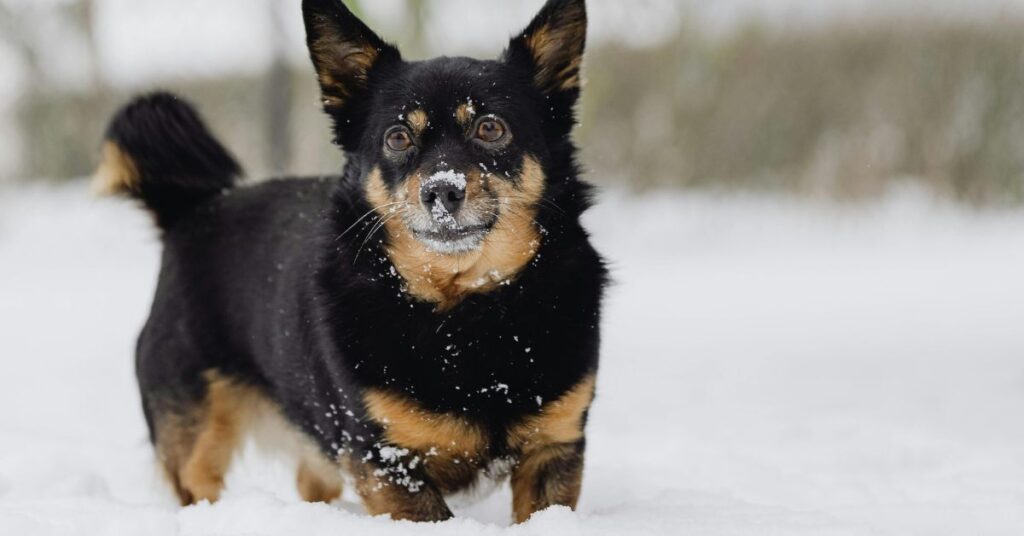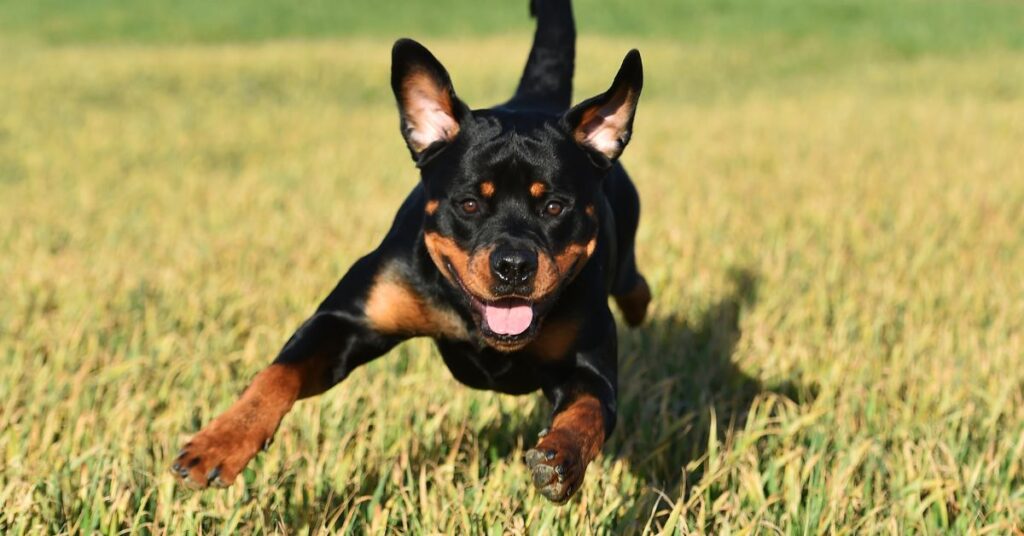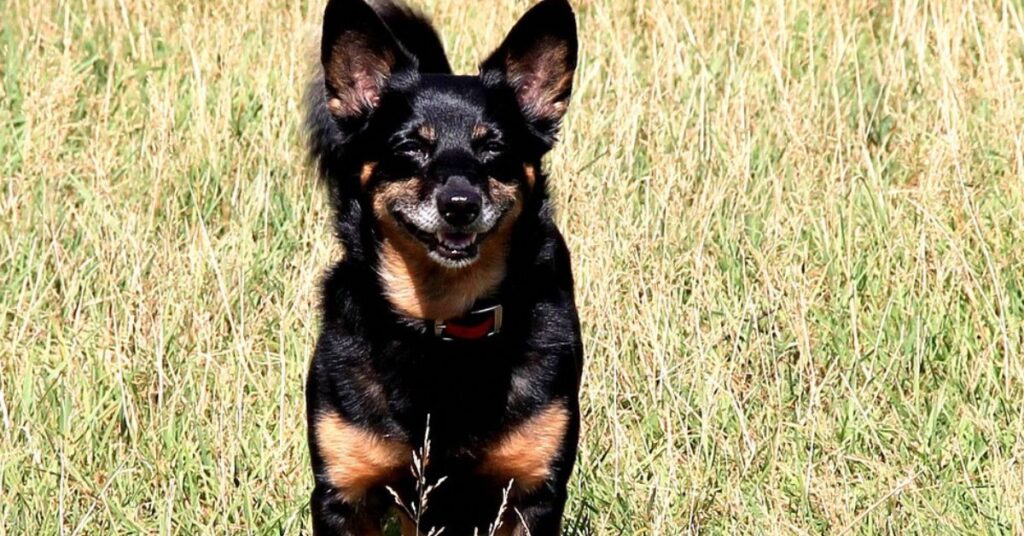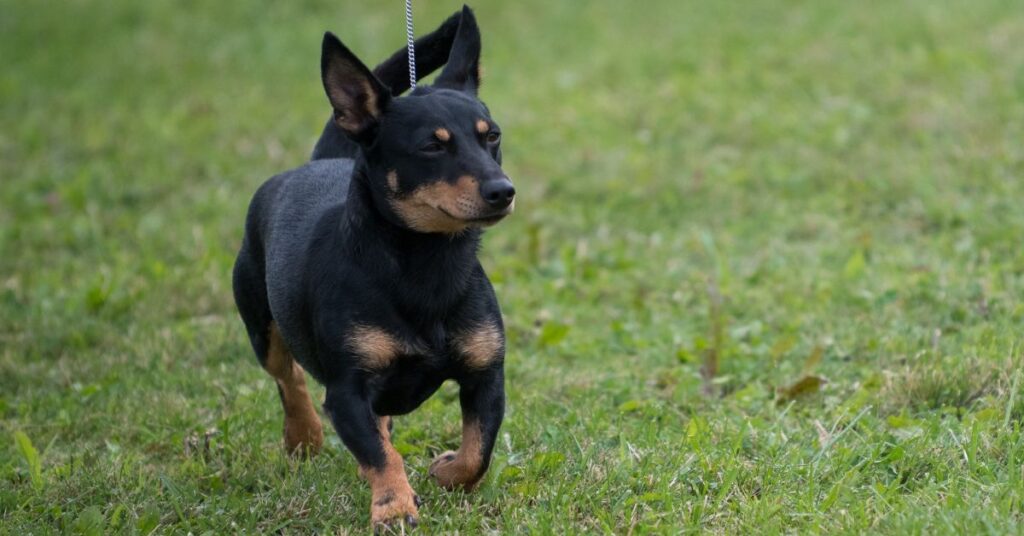The Lancashire Heeler is a small, versatile herding dog known for its intelligence, agility, and cheerful personality. Despite its small size, this breed is full of energy and excels in various tasks, making it a lively and loyal companion.
*Disclaimer: This Post May Contain Affiliate Links. This Means That I Receive A Small Commission At No Extra Cost To You Should You Click Through And Make A Purchase. Learn More On My Policy Page
Breed Characteristics
- Breed Category: Herding Group
- Size: Small
- Coat Length: Short and smooth
- Shedding: Moderate
- Hypoallergenic: No
- Grooming Requirements: Low; occasional grooming needed
- Life Span: 12-15 years
- Activity Level: Moderate to high
- Temperament/Personality: Cheerful, intelligent, alert
- Intelligence: High
- Trainability: High; eager to please
- Space Requirement: Small; suitable for apartments
- Compatibility with Children & Other Pets: Good, with early socialization
- Health Issues: Prone to certain eye conditions and luxating patellas
- Nutrition Needs: High-quality diet with balanced nutrients

Origin and History
The Lancashire Heeler originated in England, specifically in the county of Lancashire, where it was used as a herding and droving dog. The breed’s primary role was to herd cattle and drive them to market, as well as to control vermin on farms. The Lancashire Heeler is believed to be a descendant of the Welsh Corgi and the Manchester Terrier, combining the herding abilities of the Corgi with the tenacity of the Terrier. Despite its small size, the Lancashire Heeler proved to be an effective and versatile working dog, capable of handling livestock and various other tasks.
Appearance and Physical Characteristics
The Lancashire Heeler is a small dog with a sturdy and muscular build. Males typically weigh between 13 to 15 pounds, while females weigh between 11 to 13 pounds. They stand about 10 to 12 inches tall at the shoulder. The breed’s coat is short, smooth, and weather-resistant, with colors typically ranging from black and tan to liver and tan. Lancashire Heelers have a distinctive “frowning” expression due to their prominent eyebrows and alert, triangular ears. Their tail is usually carried high and forms a curve over the back, giving them a cheerful and confident appearance.
Temperament and Personality
Lancashire Heelers are known for their cheerful, intelligent, and alert nature. They are highly energetic and enjoy being involved in various activities, making them a good match for active households. The breed is also known for its strong herding instincts and may try to herd other animals or even children. Lancashire Heelers are affectionate and loyal companions, forming strong bonds with their families. They are generally good with children and other pets, especially when properly socialized from a young age. Despite their small size, Lancashire Heelers are confident and sometimes exhibit a “big dog” attitude.

Intelligence and Trainability
The Lancashire Heeler is a highly intelligent breed that is easy to train. They are eager to please and respond well to positive reinforcement techniques. The breed’s intelligence and versatility make them suitable for various activities, including herding, agility, obedience, and even therapy work. Early training and socialization are important to ensure that they develop good behavior and social skills. Lancashire Heelers are quick learners, but they can also be independent and may require consistent and firm training to establish boundaries.
Compatibility with Children and Other Pets
Lancashire Heelers are generally good with children and other pets, especially when properly socialized from a young age. Their cheerful and playful nature makes them a good match for families with children, although they may try to herd young kids due to their strong herding instincts. Lancashire Heelers can coexist peacefully with other dogs and pets, but their terrier ancestry means they may have a strong prey drive and may not get along well with smaller animals such as rodents. Early socialization is key to ensuring that they develop good manners and get along well with other animals.
Health and Nutrition
Lancashire Heelers are generally a healthy breed, but they can be prone to certain health issues, including eye conditions such as primary lens luxation (PLL) and cataracts, as well as luxating patellas. Regular veterinary check-ups, a balanced diet, and proper exercise are essential to maintaining their health. Providing a high-quality diet that supports their small size and high energy level is important. Owners should be mindful of portion sizes and feeding schedules to prevent obesity and associated health issues.

Exercise and Activity Level
Lancashire Heelers have moderate to high energy levels and require regular exercise to stay healthy and happy. They enjoy activities such as running, playing fetch, and participating in dog sports like agility and obedience. The breed thrives in homes with ample space for physical activities, but they can also adapt to apartment living if they receive sufficient exercise and mental stimulation. Lancashire Heelers benefit from daily walks, playtime, and opportunities to engage in mentally stimulating activities. Without adequate exercise, they may become bored and develop behavioral issues.
Grooming Needs
The grooming needs of Lancashire Heelers are relatively low, primarily due to their short, smooth coat. Regular brushing is necessary to remove loose hair and keep the coat healthy. Bathing should be done as needed, and routine grooming tasks such as dental care, ear cleaning, and nail trimming are important to prevent common health issues. The breed’s coat is easy to maintain, making them a low-maintenance breed in terms of grooming.
Training and Socialization
Early training and socialization are crucial for Lancashire Heelers. Due to their intelligence and energy, it’s important to establish good behavior and obedience from a young age. Positive reinforcement techniques work best, as harsh training methods can be counterproductive. Socialization with other dogs, people, and different environments helps them develop into well-rounded and confident adults. Lancashire Heelers are also known for their sensitivity, so a gentle and patient approach to training is recommended.

Famous Lancashire Heelers
The Lancashire Heeler is a relatively rare breed, but it has gained a dedicated following among dog enthusiasts, particularly in the United Kingdom. The breed’s versatility, intelligence, and cheerful personality have earned it a reputation as a loyal and lively companion. Lancashire Heelers are often seen in dog sports and competitions, where their agility and trainability are showcased.
Conclusion
The Lancashire Heeler is a cheerful, intelligent, and versatile breed that makes an excellent companion for active households. With proper training, socialization, and care, a Lancashire Heeler can be a devoted and lively member of the family.














